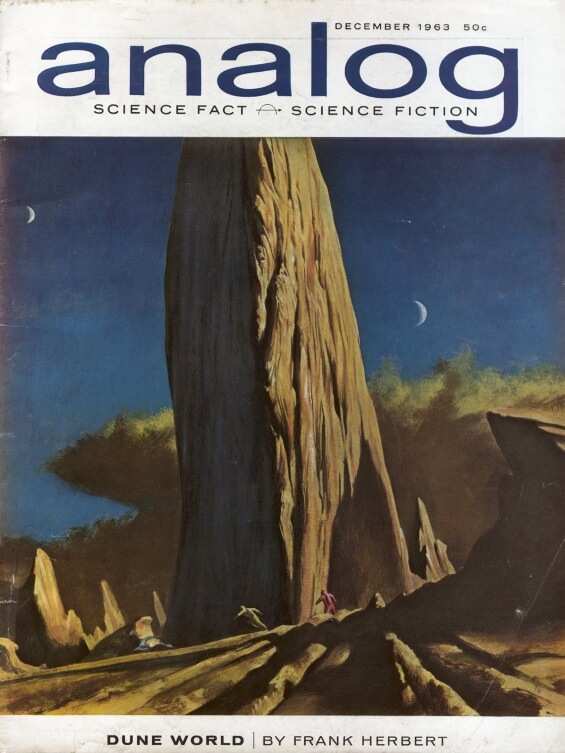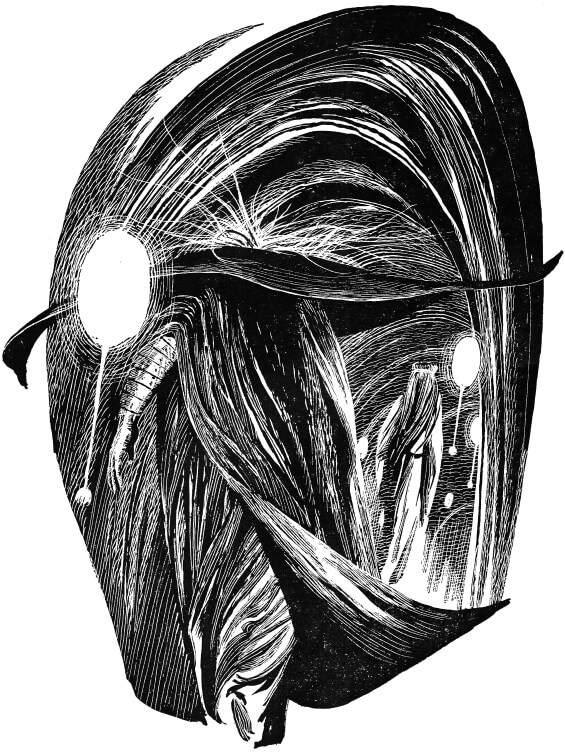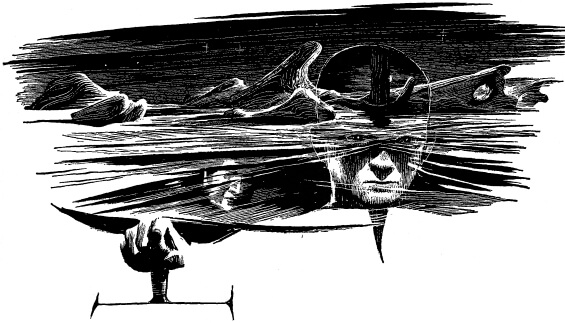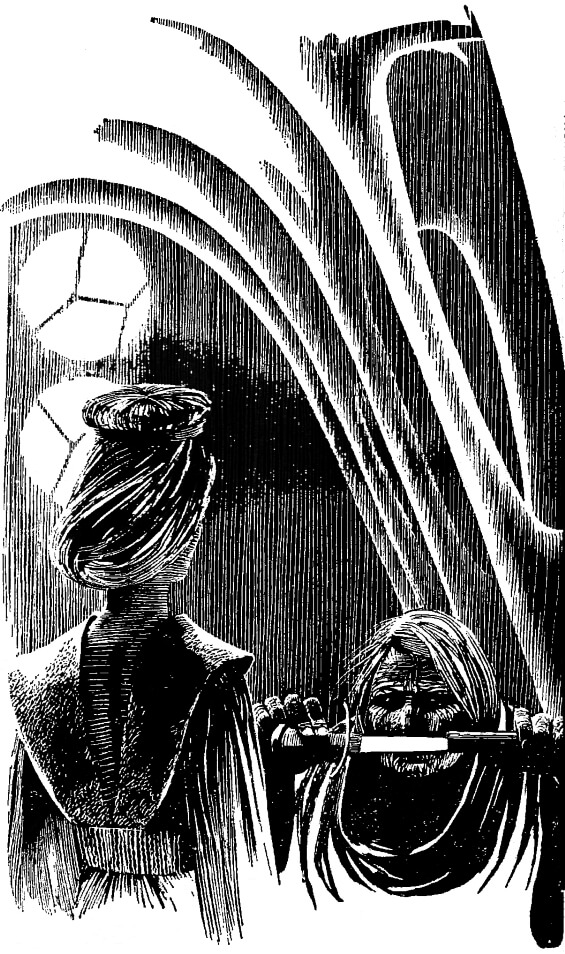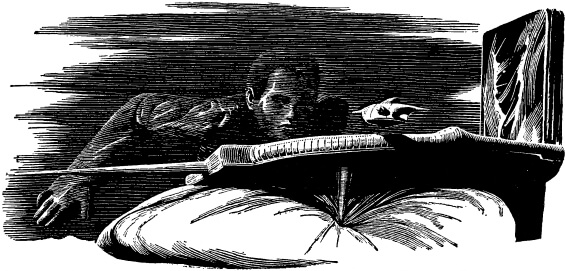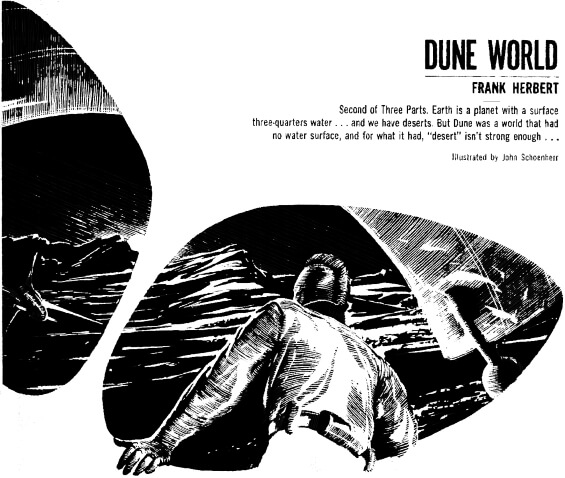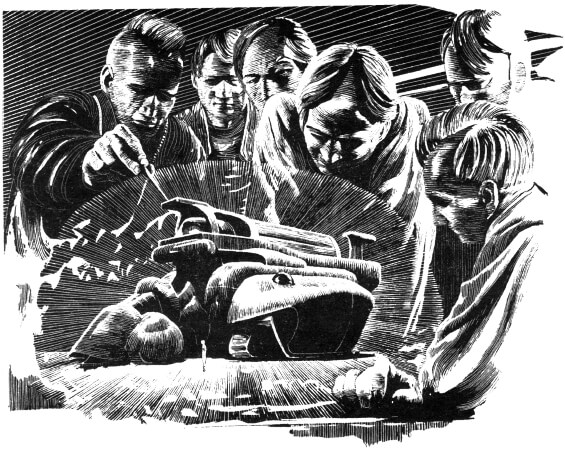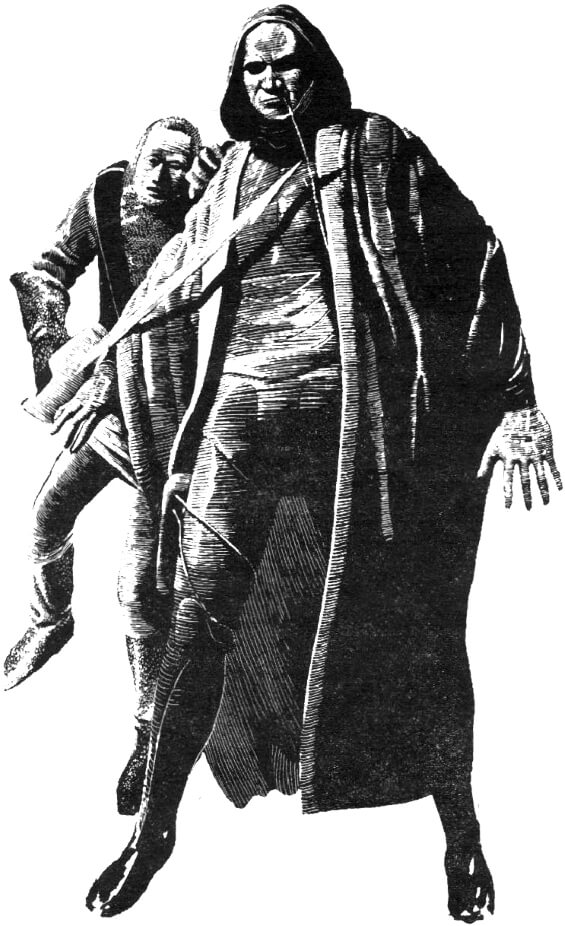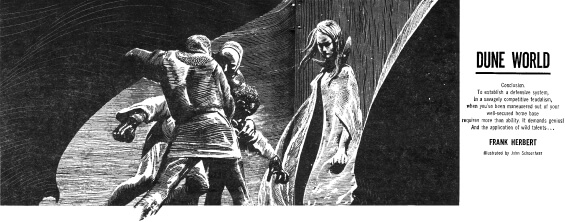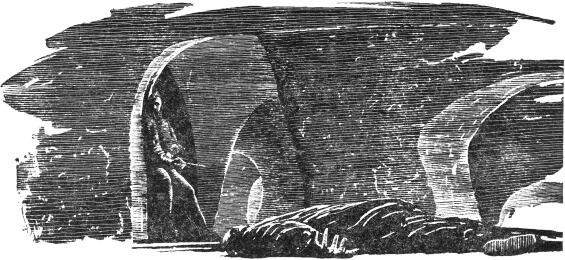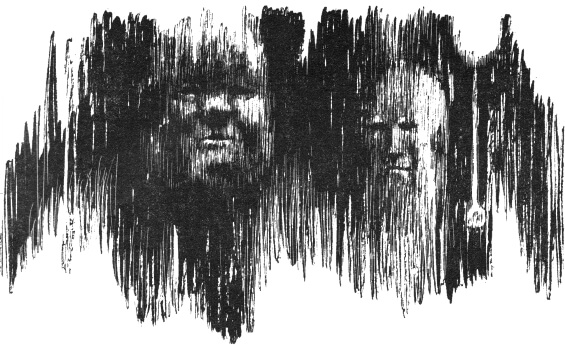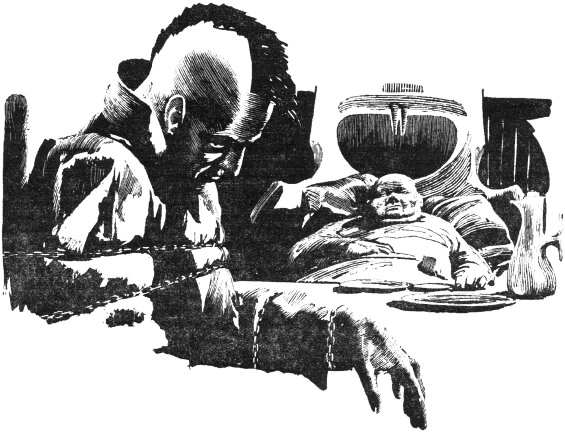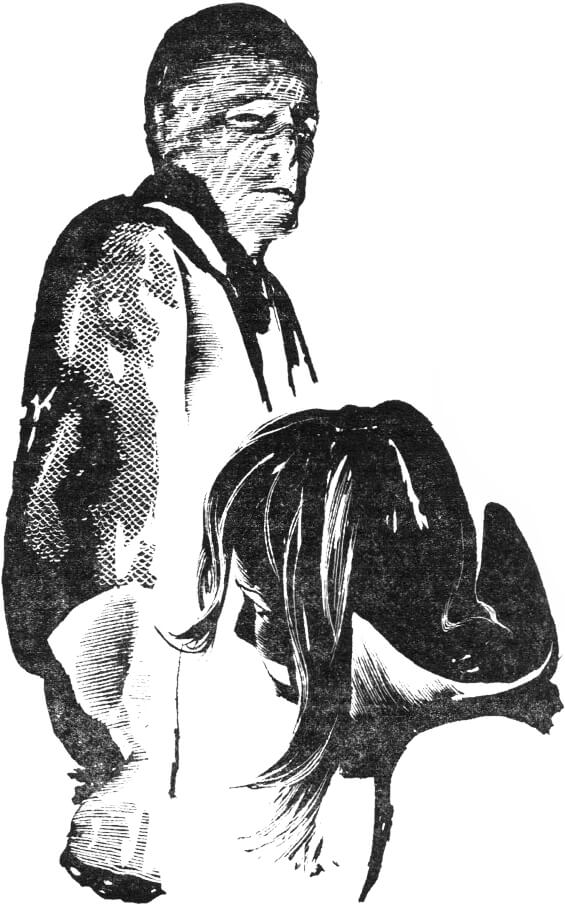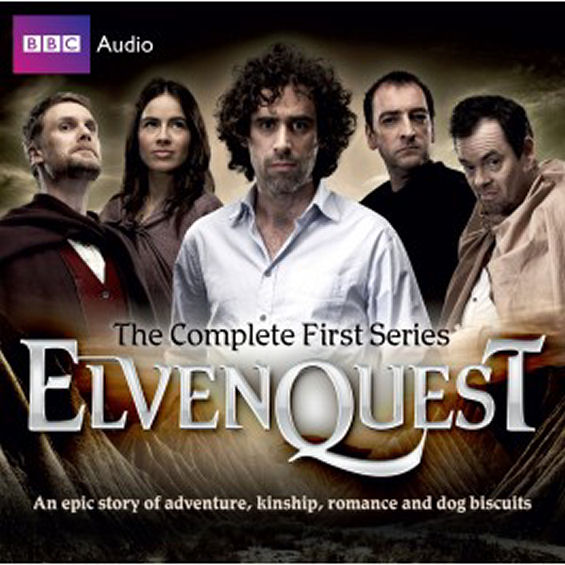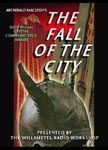
 The SFFaudio Podcast #581 – The Silver Key by H.P. Lovecraft; read by Martin Reyto (for Legamus.eu). This is an unabridged reading of the short story (34 minutes) followed by a discussion of it. Participants in the discussion include Jesse, Paul Weimer, Marissa VU, and Mr Jim Moon
The SFFaudio Podcast #581 – The Silver Key by H.P. Lovecraft; read by Martin Reyto (for Legamus.eu). This is an unabridged reading of the short story (34 minutes) followed by a discussion of it. Participants in the discussion include Jesse, Paul Weimer, Marissa VU, and Mr Jim Moon
Talked about on today’s show:
Weird Tales, January 1929, The Silver Key, a cameo by a bearded Gnorri, a cameo appearance, with The Silver Key on the mind, a whole theory, symmetry, flying vehicle, each of the wings represents an aspect of human existence, left on the dreaming room floor, Jesse had not read it, some theories from the conscious world, dream theories, a chronology, up for debate, 1919, The Statement Of Randolph Carter, The Dream-Quest Of Randolph Carter, cyclical element, a time loop, a time travel story, changes his life for the better, a better life, go with it, carter on the second loop, E. Hoffmann Price’s suggested sequel, living concurrently, a sequel, violently disliked by readers, which story was the most popular, no mention, willing to think it was a bad story, the HPLHs podcast episode, Kenneth Hite, a lot like a lot of other Lovecraft stories, The Tomb, outright references, the Great Cypress Swamp, who is the narrator of this story?, now it is agreed, the narrator is a friend of his, another dreamer, I shall ask him when I see him, a certain dream city, there are twists of time and space, the narrator himself is a dreamer, a mysterious Indian swami, a conclave of interested parties, an elderly eccentric of Rhode Island, Ward Phillips, still alive in another dimension, reigned as king, living a dream while you’re reading it, a personal crisis story, super sad, he’s become disenchanted with reality, disenchanted with his dreamworld, he’s philosophizing in fiction, the idea of a man whose pretending to act like he fits into a society, trapped in the is role, well meaning philosophers, I had this amazing dream, let’s get some Freud going here, maybe they know what theyre talking about, stamping out his imagination, he puts away his childish things, don’t be silly, a cultural shift to modernism, Clark Ashton Smith, fashions abruptly changed in the 1920s, esoteric and opulent prose, a brutalist style, poems about the automobile, we don’t have time for fairy glades and flights of fancy, early cubism, we need a tonne of grey and it ought’nt look like anything, a man out of time, after WWI, devoted to science, the over-extension of science to snuff out imagination, even knowing science takes away the beauty of it, science vs. fantasy, in stark contrast, two sides to Lovecraft, the dreamquest stuff and deep time and space, they’re doing so correctly, we’re fooling ourselves, the grinding of the wheel (grinds slow but fine), the depths of space and the depths of time, the womb-like dreamlike childhood innocence, reading his poetry, trying to reconcile the two, is Leslie S. Klinger going to do a third book?, where did this all come from?, its beautiful, a weird connection between the softness of the moss and the harsh reality of the gears, novels of the normal of the mainstream, well received by the empty herd?, a mimicing of the mimetic fiction, burning his manuscripts, his relationship with Weird Tales, Farnsworth Wright, give us your favourties, the more controversial shit you put into a show the more comments you get, disliked or not understood?, take your frogmen, Wright had a chip on his shoulder, The Loved Dead, Julia Morgan recorded one, the drawings Clark Ashton Smith did, a lot more sex in his stories…, The Evil Dead (1981), a guy on twitter (Bobby Derie), a disdain for the flesh, Case from Neuromancer, meat that gets you into cyberspace, playing PUBG, how funny Lovecraft is, Reading, Short And Deep, The Dream, Maurice Winter Moe, masturbation scenes, Unda; Or The Bride Of The Sea, if you go to YouTube, Jonathan Swift, very mocking poems, she gets out the chamber pot, smells and sounds, Strephon And Chloe, such cleanliness from brow to heel, no noisome whiffs, to make maid’s water, what poetic strains, he’s got stuff, remember that Swift is a minister, Hymen, Strephon had long perplexed his brains, to keep them sweet, the narrator intruding, the nymphs may smell it, can such a deity endure, lighting shot from Chloe’s eyes, forbid your daughters guzzling beer, in evil plight, what causes wind, think what evils must ensue, carminative and diuretic, fortune still assist the bold, even lambs fly the butcher, incredibly raunchy, a 1731 wedding toast, Strephon and Celia, The Lady’s Dressing Room, the kind of humour Lovecraft appreciates, not nice but funny, turning his own mockery on himself, how shallow, those pompous ideas, far less worthy of respect, some deep dark sad stuff, hitting us right where we live, in this way he became a kind of humorous, holy shit, in the first days of his bondage, the gentle churchly faith, only on closer view, the owlish gravity of sordid truth,
In the first days of his bondage he had turned to the gentle churchly faith endeared to him by the naive trust of his fathers, for thence stretched mystic avenues which seemed to promise escape from life. Only on closer view did he mark the starved fancy and beauty, the stale and prosy triteness, and the owlish gravity and grotesque claims of solid truth which reigned boresomely and overwhelmingly among most of its professors; or feel to the full the awkwardness with which it sought to keep alive as literal fact the outgrown fears and guesses of a primal race confronting the unknown. It wearied Carter to see how solemnly people tried to make earthly reality out of old myths which every step of their boasted science confuted, and this misplaced seriousness killed the attachment he might have kept for the ancient creeds had they been content to offer the sonorous rites and emotional outlets in their true guise of ethereal fantasy.
making me very sad, Celephaïs, Lord Dunsany, they’re real tied together, why this so painful, he’s doing a Philip K. Dick, he’s writing about himself, strongly autobiographical, hanging out with dryads,
Once in his ascent Randolph crossed a rushing stream whose falls a little way off sang runic incantations to the lurking fauns and aegipans and dryads.
what’s so painful about this story, making himself whole again, finds this key, he returns to childhood, its even worse, we’re happy at the end of Celephaïs, because its so real, it’s traumatic, Ask Lovecraft, some of you have asked me about The Silver Key, my grandfather Whipple had a key, a silver key wrapped in a parchment, what does this key open?, that really gets the basis behind this, this key only locks the place where the key is locked, the key is a way to get into the imagination and childhood, the wisdom of children, Kids Say The Darndest Things, “Biden’s kinda creepy”, his cousin, the very mundane things, an odd gift of prophecy, the connection between science fiction and the imagination, Day Million, exercising his imagination in a disciplined and an undisciplined way, sorta subtle so not loved, a sad circular story, the silver key gives you the power to do again, memories altered accordingly, you better appreciate what you have now, take it all in, you wont get to got there again, sit you down wisdom, living in nostalgia is super sad, pathetic, given that opportunity could anyone resist it?, how exiting things are when you’re a kid, there’s no way you could go back, nostalgia is a mistake, a push pull, experiences we want to re-embrace, New Zealand, I’m so depressed, it only goes one way, projecting into the future, if you want to live today you should spend all your time studying history, the CORONA virus, studying the SARS epidemic, studying vs. living in the past, noticing people tweeting dreams, go with the lava flow, Mom, tweeting dreams, kids today who are not under the vice of the church, they do have a big hat, surrounded by people who say you fantasy stories are garbage, write about people getting divorced and drinking less, where these stories are living, how much smell came into this, smell is super-associated with memory and nostalgia, I can still smell Hawaii, thinking about that photo, what you do more and more as time goes by, only the adults are capturing that, the massive innocence, the loss of innocence, so sad, Jim was 50 last year, a museum piece, I’m not going to be stuffy and crusty, fidget spinners, I remember when all that was fields, the world you grew up with is gone, WWI was this big hinge point, disillusioned with science, where is the hope?, William Blake accused Isaac Newton unweaving the rainbow, how wonderful it is to make something up, it IS magic, Alan Moore, magic is the original art, this story vs something I watched on the news, all just delusion, why not create new fantasies, its all kind of the same shit, getting mastery, BBS (bulletin board systems), getting all that equipment together (today), not a Yithian thing, his acceptance of the changing nature, fidget spinners are not cool, Paul does fidget, the disgust in Jesse’s voice, not making it better, the amaranthine wine from Atlantis that you drink and get depressed, reading the Statement Of Randolph Carter, based on the opposite, you need to study more math, he slams hard truths, the key is the only real thing in the universe, the proseyness of life, as middle age hardened upon him, why shouldn’t you spend all your time in the VR machine, matted hair, spending time in the meat space, my friends!, some sort of sadness there, talking about the darkness is comforting, being in a creative space, a solace from someone long dead, racism in this, his family his namesake, not everything about Lovecraft is based on race, that fear and horror of race is tied up with the meatspace and not the dreamworld, Pickman transformed into a ghoul, Jim’s show on The Shadow Over Innsmouth, trying on the mask of the monster for yourself, if you’re a vampire you can stay up all night, Interview With The Vampire by Anne Rice, still painting I see, stupid human, God’s real I’ll take you to his house!, a hysterial way, that humour that fun and delight in the strange and the weird, never happier than when he’s found a new author, when he’s sharing it, a real fan, what’s that giant essay for?, Supernatural Horror In Literature, his literary inspirations, the horror of dark monsters, by god they’re amazing, a flip-flop in Fungi From Yuggoth, Lovecraft criticism down the wrong path, looking at his bookshelf, he wrote horror fiction because he was a horror fan, some liquid he’s going to kill himself, Facts Concerning The Late Arthur Jermyn And His Family, She by H. Rider Haggard, Horace Baboon Holly, the handsomest man in Europe, just go with it, the Scopes monkey trial, a monkey’s grandchild, its a science story, a tension between a love of science and its acknowledgements about its reality around us and this imaginative space that’s all about art (and almost commerce), no algorithm or formula for a good story, writing to a formula, I think I see a formula, a pastiche or unworkable, finding their own voice and formulas, such a scientist, science is good for explaining this amount of reality, perception of beauty, a meaning in and of itself, appreciating it in and of itself, a far more interesting story than Jim first took it for, rethinking how you think about Lovecraft, shake the de Camp off, Robert E. Howard, remove the traditional blinkers, he’s a thinker on the page, calling him a horror writer is very limiting, writing about philosophy, spinning up scenarios, not easily classifiable, almost no tentacles, how poetic the lines are, that jarring bit of dialogue, Randy!, Howie!, the phonetics, dunt and wold, haint she tuld you, mooning around in that snake den, tea-parties with dryads, like a tea ceremony, the Alexa device, this is really big Jesse, it’s all proprietary, Six Or Seven Sentence Stories, little silly stories are really fun, half the delight of Jesse’s life, a dangerous pig with pants, weird vocab words, somehow you can make them connect, the connections are very deep within, its reflected, a Chinese myth, there’s a story there, he has not chained his fortune to some marketplace, where’s Lord Of The Rings II?, a polite gentleman, trying to chase the market, the purity there is unbelievable, The Black Diamonds by Clark Ashton Smith, arabian knights, fistfights and swordfights, a delight, saw raw and pure, unashamed, not a good book, so entertaining, harness this imagination, inside a sturcture like a poem, revels in the language and the words and the construction, that same unadulterated pure imagination fantasy, he hasn’t been shamed out of it, the documentary The Emperor Of Dreams, Hippocampus Press.
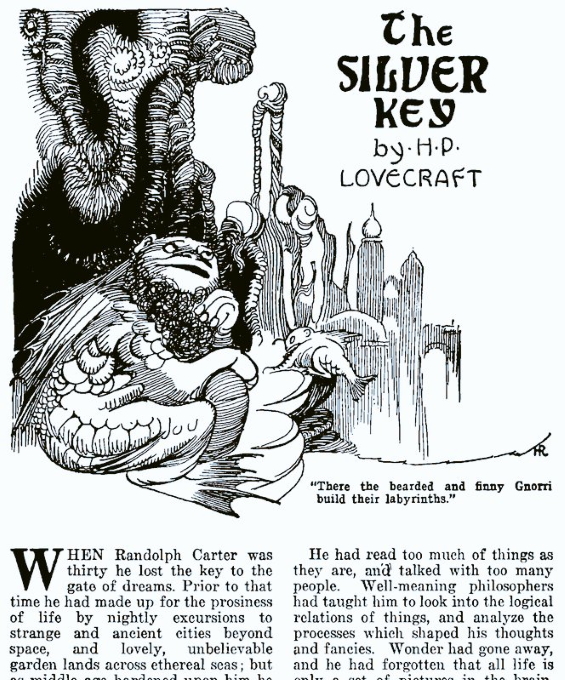
Posted by Jesse Willis
